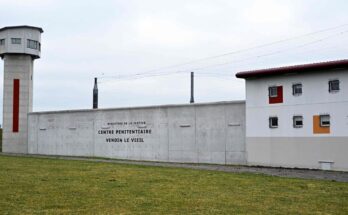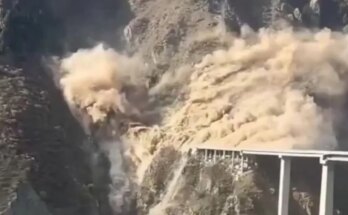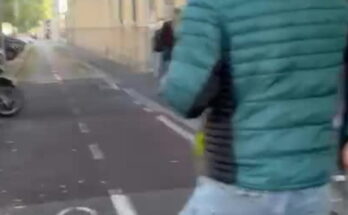Colombia will no longer call its ambassador to Washington for consultations, as confirmed by the Foreign Ministry. “For now there will be no consultations. We continue to say that we must talk and we have asked for the support of all of America to establish a diplomatic dialogue,” Foreign Minister Rosa Villavicencio said in statements to the media during the CELAC-EU summit on Monday. Bogota instead made “some verbal notes” to Washington to clarify a photo of a meeting at the White House in which an image of President Gustavo Petro in prison uniform is seen. “We hope that with the clarifying note they can summon our ambassador to explain this event,” Villavicencio said.
By Sunday evening the tension had increased. Journalist Federico Gómez Lara commented in The Minister of the Interior, Armando Benedetti, denied the second part. Subsequently, Petro referred to the matter in
The president has adopted a strategy opposite to the conciliatory tone of his Foreign Ministry. Throughout Sunday he raised his tone both in X and in an act in which he apologized on behalf of the state for the genocide of the left-wing Patriotic Union party at the end of the last century. According to him, a group of Trump advisors wants to “destroy the government of Colombia, simply because it is progressive and does not fit into the narco-paramilitary government.” “They seek to homogenize Latin America as an obedient servant of a government that does not respect the rules of sovereignty and democracy,” he said. Later, he assured that the Colombian people would rise up to defend him if they wanted to put him in prison: “That awakening will be hurricane and stormy, but happy. We will be jaguars dancing for the dignity of Colombia.”
The Farnesina has tried to soften its words since the early hours of Monday. Vice Chancellor of Multilateral Affairs Mauricio Jaramillo told Blu Radio that a decision has not yet been made on the expulsion of the US chargé d’affaires in Bogota. “The president has not confirmed it. There is no need to speculate, it is a decision that belongs exclusively to the President of the Republic,” he said. But he confirmed the request for consultations. “The president decided to call him for consultations due to the gravity of the revelations made in the press,” he commented. The chancellor, for her part, was more ambiguous in an interview with W Radio: “There will be a verbal note so that our ambassador can come.”
Both Jaramillo and Villavicencio were more conciliatory than the president. “We maintain relations at the highest level. This is why Daniel García-Peña continues to be ambassador,” the vice-chancellor said in his radio interview. However, Jaramillo reiterated that Trump’s statements on Petro – who a few weeks ago he had defined as “a leader of drug trafficking” and “a criminal” – are “unacceptable” and ignore “the figure of the president as a symbol of national unity”. Villavicencio, for his part, called for dialogue in his statements to the media at the CELAC-EU summit: “Our position is that of diplomatic dialogue, that of political negotiation around disputes.”
Meanwhile, Washington has rejected Bogota’s accusations. The Undersecretary of State, Christopher Landau, declared on Monday in an interview with the NTN24 channel that “you should never believe everything you read in the newspapers”, despite the photo published by the magazine Edit Sunday is on the White House website, although Petro’s image is a small detail, requiring a zoom to see. The senior official also said it was “very tragic” that Colombia is represented “by a person of such low moral character.” “Thank God there will be elections next year and I suppose that the Colombian people, in their great wisdom, will reject this path that leads to misery and hatred,” he underlined.
The role of Bernie Moreno
Yet another diplomatic crisis between the Trump and Petro governments erupted on Sunday after the details of the photo published by the White House on October 21st were released in Colombia. Among the four protagonists of the image we see, after an in-depth analysis, that the deputy chief of staff, James Blair, is holding a folder with a document entitled “The Trump Doctrine for Colombia and the Western Hemisphere”, signed by Republican Senator Bernie Moreno. In addition to the photo of Petro in prison uniform, there is a list of targets. One of these is to “establish selective sanctions against Petro, his family and his associates”. It’s something that came to fruition three days later, when the Office of Foreign Assets Control (OFAC) included the president on a list of people linked to illegal activities, known as the Clinton list. Another point is to “launch a thorough investigation into Petro’s campaigns and its foreign funding.”
Petro focused his criticism on Senator Moreno, who was born in Colombia and comes from an influential family of businessmen and politicians. According to Petro, the MP seeks to punish him for complaints filed decades ago against two of his brothers, for alleged money laundering and land exploitation. The unions have never led to convictions against them. “It is a family that wants revenge on the President of the Republic,” the president said at Sunday’s event. “It’s a vendettalike those of the mafia”, he underlined. The senator, for his part, responded



